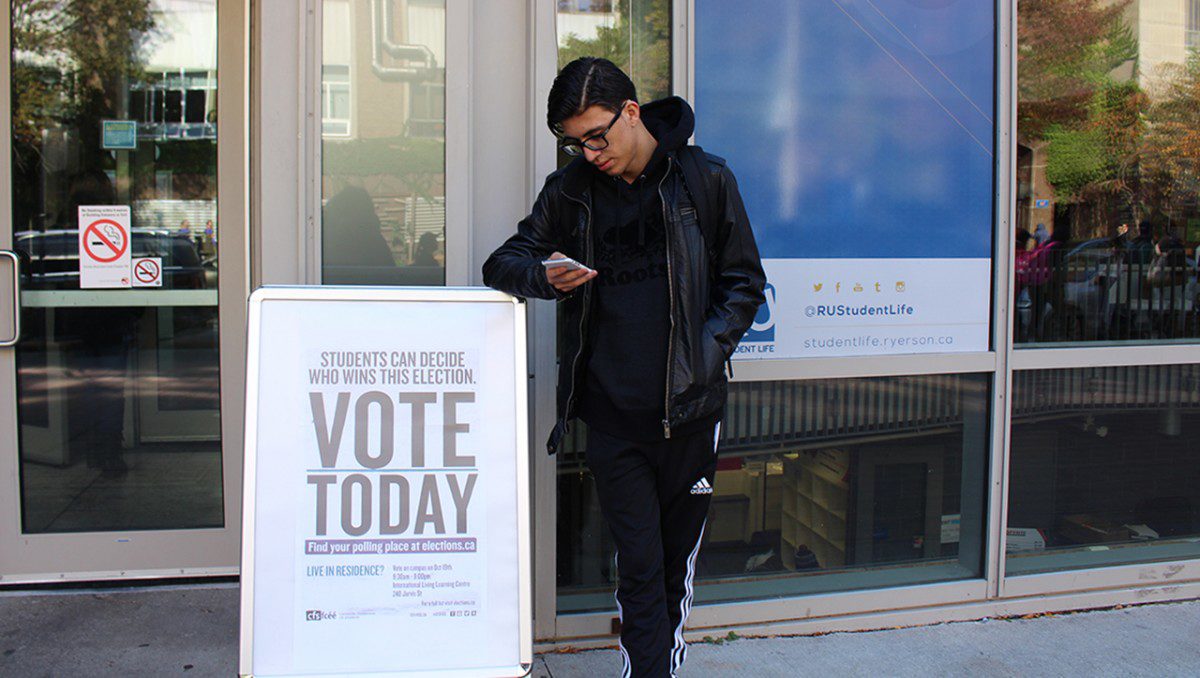
Apathetic, indifferent or cynical: youth need to realize the power of their vote
By Nicole Abi-Najem
Rebecca Kogon is a Toronto-based publicist who says she has never voted in a federal election.
For Kogon, choosing not to vote isn’t about a lack of knowledge, or about sending a direct message.
“This is not something I’m proud about,” says Kogon, “I’m just fairly apathetic.”
Kogon is not alone.
The Council of Canadians’ website states almost two out of three young people did not vote in the last general election, making them the age group with the lowest voter turnout.
According to a 2011 Labour Force Survey published on Elections Canada, 30 per cent of youth between 18 to 24 said they did not vote during the 2011 federal election because they were not interested. Twenty three percent cited being too busy as their reason for not voting, and 11 per cent stated they didn’t vote because they were away or out of town.
Kogon says she took a quiz on the government’s website to better inform herself. The problem, explains Kogon, is that the questions weren’t targeted towards the general population.
“The quiz takes too long, around 45 minutes,” says Kogon, “and it was too specific. At the end, it said my values most aligned with the Green party, but I don’t agree … if it was catered to the apathetic voter, that would simplify it.”
Kogon says she plans on voting in the future, but wants to first educate herself about the parties’ stances.
Neil Thomlinson is associate professor in the department of politics and public administration at Ryerson University. Thomlinson says he isn’t buying apathy as the reason why young Canadians aren’t voting.
“I don’t think most youth are apathetic or indifferent. What they are is cynical. They don’t believe that there’s much difference between parties, local candidates, and leaders.”
“They don’t believe that their participation will make any difference,” he adds, “and they don’t really understand the system very well at all, so that the expressed cynicism is often a cover for their lack of knowledge.”
Thomlinson lists four main reasons for why younger people should vote:
- Most issues that affect everybody also affect young people, even if they don’t now, they will in the near future.
- “Almost all polls show a significant disjuncture between the political views of younger people and older people,” says Thomlinson. “By not voting, youth are letting the views of the older folks prevail.”
- Voting determines the country we will all have to live in. “Somehow,” asserts Thomlinson, “I don’t believe that young people don’t care about that.”
- There are issues that will affect youth personally, like post-secondary education, jobs, day care, and while Thomlinson says that that will affect everybody, it will affect young people more because “they’ll be around longer to enjoy – or suffer with – the consequences.”
Apathy, indifference, cynicism, whatever it is, Thomlinson says that young people just need to realize their power. Even if one vote won’t change the government, together, youth can have a radical impact on how our country is governed.
“The mathematical reality is that, if young people voted in anything approaching the same proportion as their elders, they would change the election result,” he says. “They would get a government that would deliver something closer to their policy preferences and, at the same time, they would piss off a lot of old people who would find their preferences ‘outvoted.’ One would think that combination of benefits is a pretty good incentive to vote.”